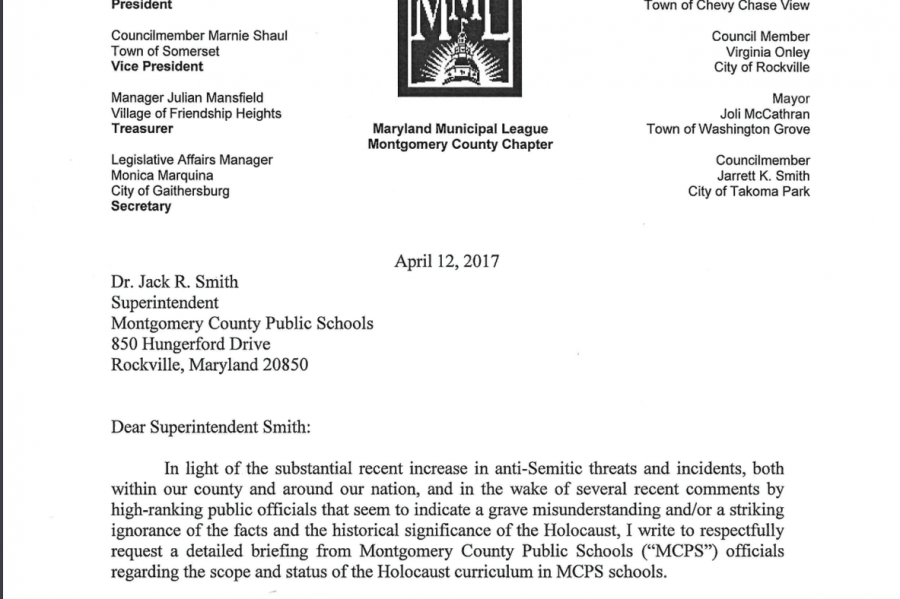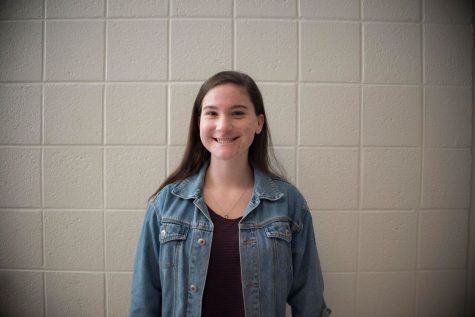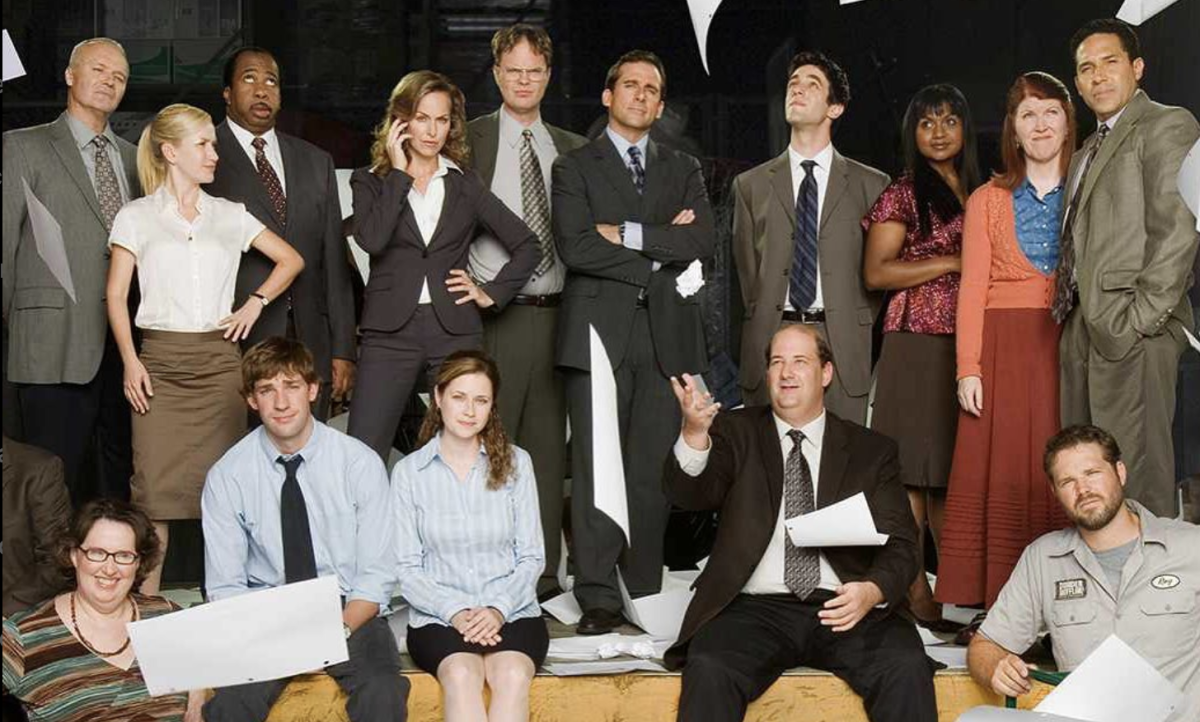Councilmember pushes for revaluation of MCPS Holocaust curriculum
May 6, 2017
Gaithersburg Councilmember Ryan Spiegel requested a briefing with superintendent Jack Smith April 12 about the current MCPS Holocaust curriculum. He wants to ensure students are better educated on the subject in light of the recent string of bomb threats to Jewish community centers and schools, anti-semitic graffiti in MCPS as well as the statement made by press secretary Sean Spicer when addressing the chemical attack on Syria, he said.
“It should be something that we should be making sure is taught broadly and deeply, in age-appropriate and context-appropriate ways, to every student in every school,” Spiegel wrote.
In MCPS, the modern world history class is where most Holocaust education is taught. The county provides teachers with a brief outline of what they want to be taught during the Holocaust unit, such as the rise of Hitler, his policies and ideas, the atrocities in the concentration camps, survivor stories and the creation of the state of Israel. Teachers are allowed to add or take out subject matter as they wish.
World history teacher Jacob East believes there isn’t a direct correlation between the MCPS Holocaust education and the anti-semitism around the county.
“The knowledge and facts in the curriculum are all there,” East said. “What it boils down to is how the students process the information, their maturity towards it and the empathy they feel. It also depends on how the teachers shape the curriculum and relay the information.”
Junior Zoe Marder raised concerns about what she learned about the Holocaust at Whitman versus in Hebrew school.
The knowledge and facts in the curriculum are all there. What it boils down to is how the students process the information, their maturity towards it and the empathy they feel.
— world history teacher Jacob East“Most of my knowledge about the Holocaust has come from going to Hebrew school, not from my Whitman education,” Marder said. “I definitely agree with the letter because it’s important that everyone understands just how horrific the Holocaust was, not just Jews.”
Sophomore Danny Calder learned a small amount in school about the Holocaust, both in history class and in English where he read Elie Wiesel’s book “Night.” However, Calder’s recent visit to the Holocaust Museum in DC had more of an impact than anything taught in his classroom, he said.
“I recently went to the Holocaust Museum and found the information in there chilling yet extremely important,” Calder said. “I think that’s a good resource as well.”
Calder agrees that revision of the curriculum to stress the Holocaust unit more than they do now could be helpful, especially due to the large Jewish population at Whitman and in the community.
Even if no change occurs, Spiegel emphasizes that there’s never a better time than the present to be discussing, remembering and understanding the Holocaust. As the number of living survivors decreases, he argues that schools must continue to tell the tragic stories to prevent history from repeating itself.
“That is the only way to ensure that the commitment to ‘never forget’ is truly made real, and to instill in future generations core values such as compassion, tolerance, and justice that rose from the ashes of the Holocaust,” Spiegel wrote.
Link to full letter:
https://drive.google.com/file/d/0BwJeq7L2aRPJTVEtV3Njd2xoYVE/view








